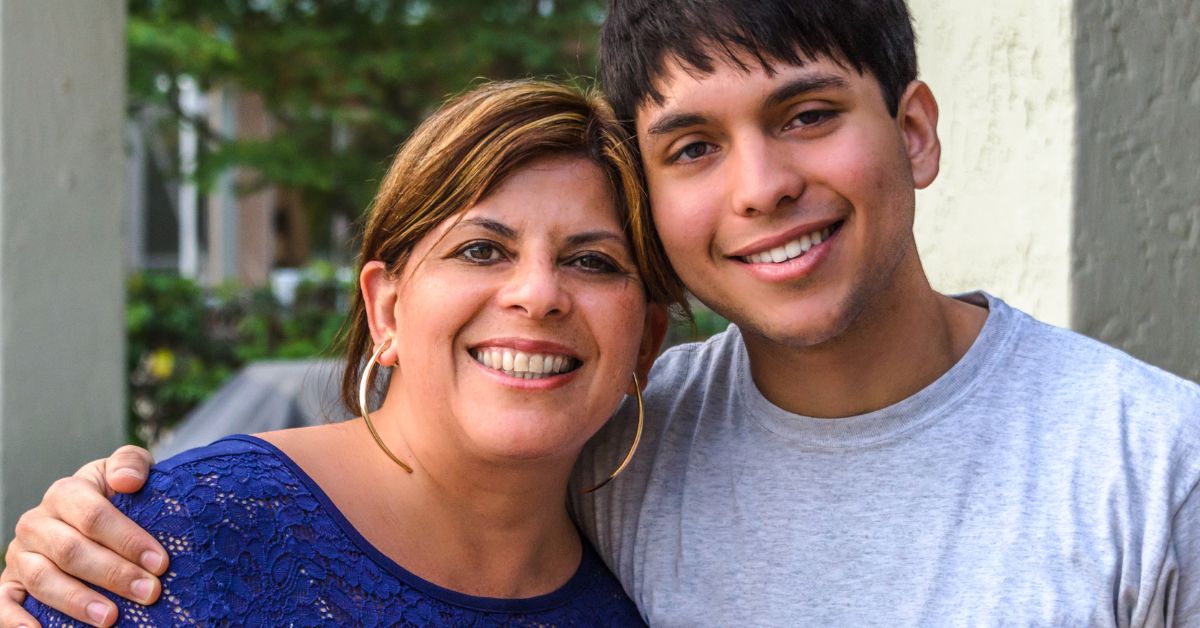Your loved one’s recovery from alcohol or drug abuse can be difficult. It involves overcoming many challenges and requires hard work, determination, and willpower to avoid triggers and the risk of relapse.
But there’s another crucial ingredient to the recipe of recovery that often goes unnoticed – accountability. It is a vital aspect of recovery as it helps individuals to take responsibility for their actions and decisions.
By embracing accountability, individuals can achieve a full and fulfilling recovery. Do you want to learn more about this? Let’s discover more about accountability, its role in recovery, and the benefits it can bring to your loved one.
What Is Accountability in Recovery?
On the road to staying sober, it’s important to remember that accountability doesn’t equate to taking on unnecessary blame or guilt for past actions.
Instead, it means acknowledging our actions and reactions, accepting the outcomes, and staying committed in recovery. The decisions your loved one makes can significantly impact their path toward or away from sobriety, which is why personal accountability is so crucial.
The Crucial Role of Accountability
Accountability is a crucial aspect of the journey toward sobriety. It acts as a compass that guides individuals back on track and helps them navigate substance abuse recovery.
But why is personal accountability so significant? There are two primary reasons:
- Impact on Healing: It fuels people struggling with addiction to heal, which helps them make conscious decisions and avoid addictive behaviors.
- Promotes Personal Growth: It allows individuals to learn from their past actions and make informed choices for the future.
The Importance of Accountability in Addiction Recovery

Accountability essentially means taking ownership of your actions and decision-making in recovery. This self-responsibility can powerfully fuel personal growth, often stunted by addiction.
The more accountable your loved one becomes during recovery, the more they realize their true potential to make better decisions.
Personal Accountability: A Major Role Player
When it comes to overcoming addiction, taking personal responsibility is crucial. This is because it plays a significant role in empowering individuals to heal.
Personal accountability is vital for a few reasons, such as:
- Control over life: It gives individuals the power to take charge of their lives once again after being taken away by addiction.
- Encourages change: It emphasizes that individuals can steer their own course toward a better future instead of seeing themselves as passive victims.
- Eliminates denial: It helps identify areas that need improvement and develops problem-solving abilities.
FREE: Get the 3 pieces of advice that helped me understand this disease of addiction
How Accountability Fuels Personal Growth
Change will happen when your loved one focuses on what they have learned from their past rather than feeling guilty about it. To do this, they must understand how accountability nurtures growth and improvement.
- Acknowledge harmful patterns: Recognizing unhealthy habits is the first step toward change because it creates opportunities for improvement and growth.
- Informed decisions: By learning from past mistakes, your loved one can make wiser choices supporting recovery.
- Start a positive cycle: Each step toward recovery leads to personal growth instead of maintaining old habits.
In recovery from addiction, your loved one should be honest with themselves and others to successfully recover. Now that you know what accountability is and its role, it’s time to understand how your loved one can stay accountable in recovery.
How To Stay Accountable During Recovery?

While maintaining accountability sounds gratifying on paper, it can be daunting when put into practice, especially when dealing with the possibility of a loved one relapsing in IOP. Keep calm! Your loved one can follow these easy steps to reinforce accountability and stay sober:
- Be Transparent: Being honest with yourself about your struggles is crucial.
- Set Realistic Goals: Creating achievable milestones keeps you motivated and focused.
- Seek Support: Joining support groups can enhance the sense of belonging and increase motivation.
- Acknowledge Progress: Celebrate even small achievements to motivate yourself to keep growing and improving.
- Maintain Routine: A daily routine can reduce the number of decisions you make daily, making it easier to manage your time and be more productive.
So, we now understand the importance of accountability in the recovery journey. But what are the actual benefits for your loved one? The path can sometimes seem unclear, but don’t worry; in the next section, you’ll get answers.
The Benefits of Accountability in Recovery
Personal accountability can completely change someone’s life. Its benefits range from mental and emotional rewards to physical improvement and a renewed social life.
Mental and Emotional Rewards
The impact of accountability goes beyond just strengthening commitment; it also positively affects your loved one’s mental health.
- Improved Self-esteem: Taking ownership of our actions, whether good or bad, enhances confidence while your loved one gradually regains control of their life.
- Reduced Anxiety: Clear-cut goals and consistent progress alleviate anxiety related to uncertainty and perceived idleness.
WATCH: Free, confidential workshop that explains how to "Love Another Way"
Strengthening Relationships During Recovery
When someone is in recovery, being accountable can help us build trust with those around us. If your loved one is accountable, they show they are reliable and committed to positive change.
- Clear communication: Being honest about struggles fosters open and assertive communication.
- Trust building: When people witness your loved one’s commitment to honesty and progress, trust can be rebuilt.
Physical Rewards
Although they may not be as immediate as other advantages, accountability brings many physical benefits, such as:
- Healthier choices: When people struggling with addiction prioritize their mental health and become more self-aware, they’re more likely to make healthier lifestyle choices.
- Stress management: Reduced anxiety levels can lead to decreased physical symptoms caused by stress.
If you believe the benefits of accountability are too good to be true, wait because it gets better when a strong support system gets involved. They can help your loved one to take responsibility for their past mistakes and stay committed to sobriety.
The Power of an Accountability Partner in Addiction Recovery

Dealing with addiction is a challenging task that shouldn’t be faced alone. In addition to taking personal responsibility, finding an accountability partner can help during your loved one’s recovery process.
The Value of Being Held Accountable by Others
An accountability partner is like a guiding light. They can provide support and encouragement to help your loved one stay on track. It could be a good friendship in recovery, a family member, or someone from a support group willing to help.
During recovery, they can offer the following benefits:
- Offers emotional support: They provide a listening ear and shoulder to lean on during difficult times.
- Holds your loved one accountable: They expect honesty about successes and failures and keep your loved one accountable to their goals.
- Encourages growth: They celebrate your loved one’s victories and offer constructive feedback during setbacks.
Remain Accountable Through Accountability Partnerships
An accountability partner is essential for the early stages of sobriety and long-term recovery. Your loved one’s partner will provide support by:
- Encourages Consistency: Regular check-ins can serve as motivation to maintain consistency on the path to sobriety.
- Foster Mutual Growth: Sharing experiences offers both partners invaluable insights and different perspectives.
- Strengthen Resolve: When someone believes in your loved one’s potential, it can reinforce their determination to achieve long-term sobriety.
NEW: How to make the shift from "Mom Code" to prioritizing your own well-being
Seeking Addiction Treatment: A Step Toward Sobriety
When coping with addiction, it’s necessary to seek professional assistance. This shows that your loved one accepts the problem and that they’re taking responsibility for it.
Rehabilitation therapy provides various treatment options based on individual needs, emphasizing personal accountability. Among the most common therapy options for addiction treatment you can find:
- Individual counseling: It can help create personalized coping strategies and promote self-responsibility by understanding unique addiction patterns.
- Group therapy: It promotes peer support and individual accountability.
- Family therapy: It can mend fractured family bonds and foster a supportive home environment, promoting collective recovery efforts.
Maintaining Accountability During Recovery for a Better Future

Accountability is a powerful tool for those in recovery. It helps individuals keep themselves responsible for their actions, thoughts, and feelings. With accountability, your loved one can work toward developing positive relationships, making amends, and rebuilding their self-esteem.
A recovery plan is not linear, and there may be ups and downs. However, with accountability and proper support, overcoming obstacles and continuing the journey to recovery is possible.
Finally, remember that hope plays a crucial role in recovery. By holding themselves accountable, your loved one can build the confidence and resilience they need to overcome addiction and create a life worth living.
Frequently Asked Questions About Accountability in Recovery
How do you hold yourself accountable in recovery?
Taking responsibility for your actions, setting realistic goals, and seeking support from others are vital components of holding yourself accountable when recovering. Being truthful about your challenges and accomplishments is essential, as this can significantly facilitate personal development. Consistently checking in with accountability partners and acknowledging even minor successes can be effective ways to stay motivated to maintain sobriety.
What is accountability vs. responsibility in addiction?
In recovery from substance use, accountability and responsibility are essential but separate concepts that work together. Accountability means accepting responsibility for one’s actions and the resulting consequences without making excuses or blaming others. On the other hand, responsibility involves taking care of oneself by choosing healthier behaviors over addictive ones, leading to a more productive life after recovery.
SEE: Find out why your boundaries keep getting crossed (and how to reinforce them)
Who is the accountability partner in recovery?
An accountability partner can be a trusted friend, empathetic family member, or reliable individual from your support group. They serve as witnesses throughout your recovery journey, offering emotional support and encouragement during weak moments. They also expect honesty about your progress, creating an environment that keeps you accountable throughout recovery.
What is an example of holding yourself accountable?
One way to hold yourself accountable is to share with your support group about an instance where you had strong cravings but could resist them. By doing so, you acknowledge the challenging experience and recognize that you can choose whether or not to act on those cravings. This demonstrates personal accountability in its true form.
